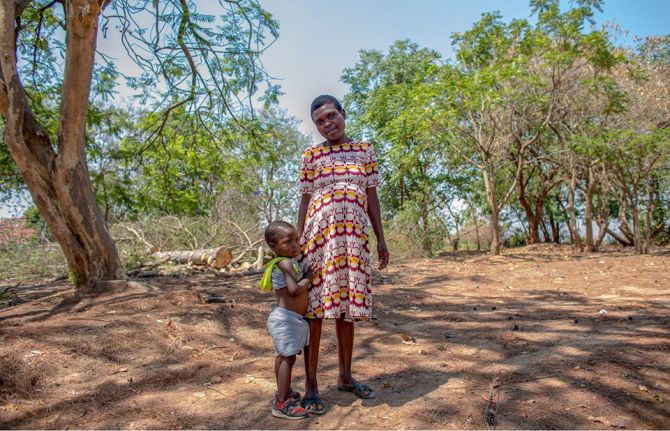
UNAIDS welcomes parliament’s decision to repeal the law that criminalizes HIV transmission in Zimbabwe
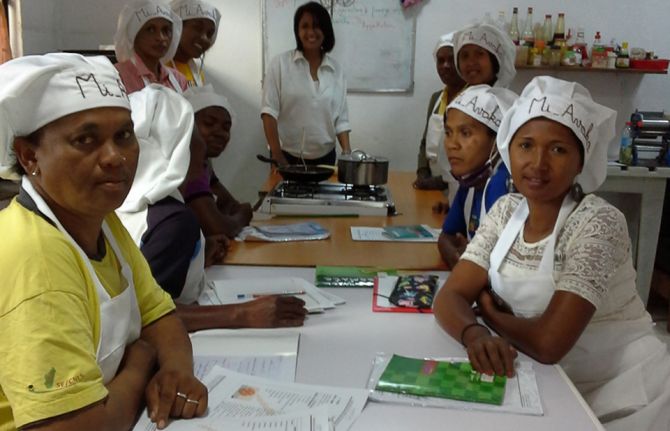
Social enterprises and financial saving supporting Madagascan sex workers through COVID-19
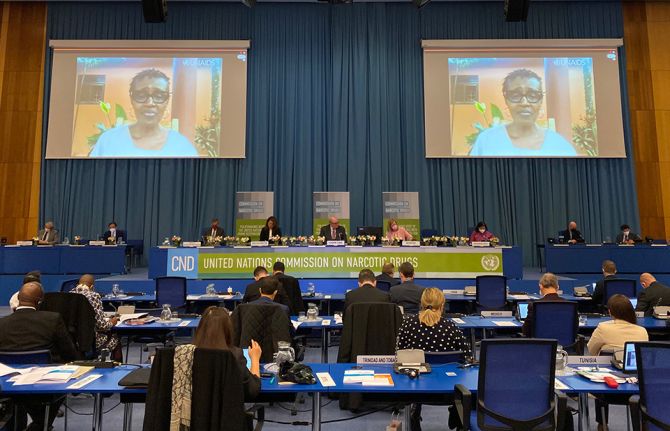
UNAIDS Executive Director's Statement at the 65th session of the Commission on Narcotic Drugs
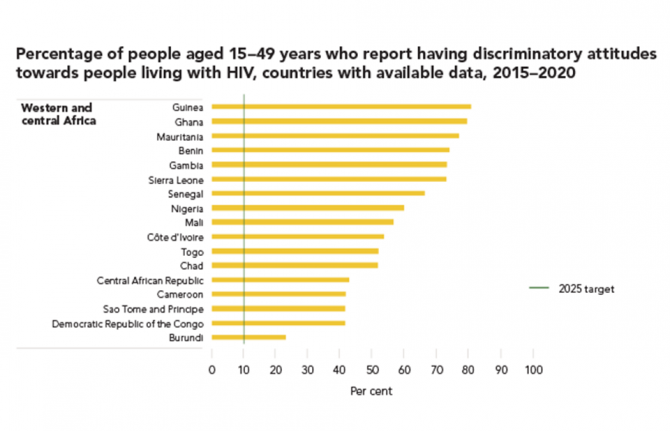
Discriminatory attitudes remain common
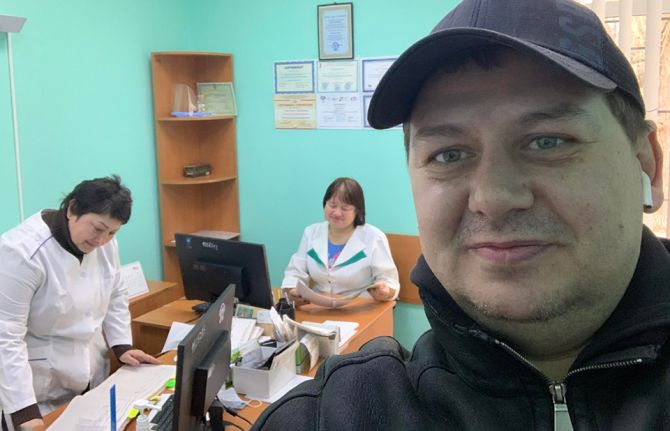
Keeping harm reduction available in Ukraine
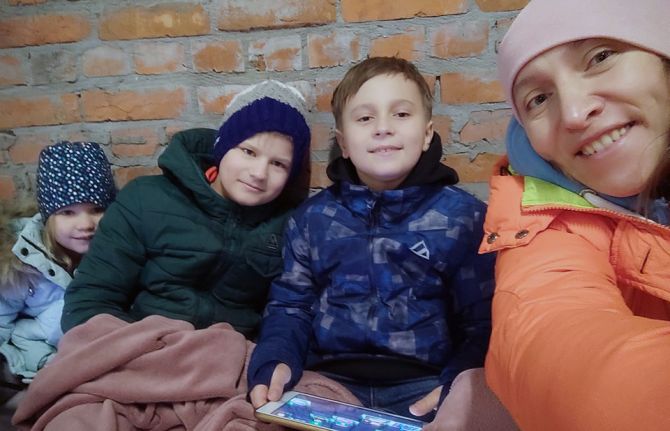
Quick thinking and planning instrumental for HIV network in Ukraine
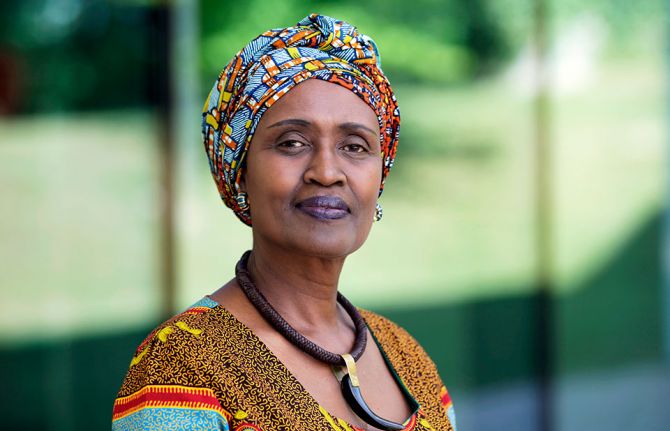
UNAIDS Executive Director's message on International Women’s Day 2022
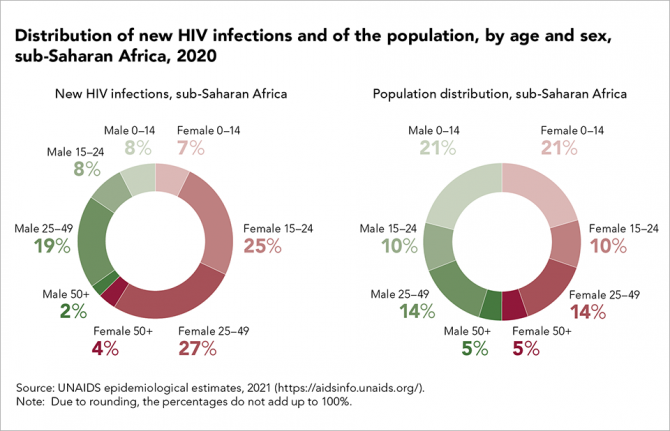
Women and girls carry the heaviest HIV burden in sub-Saharan Africa

Remembering a global health advocate and renowned doctor
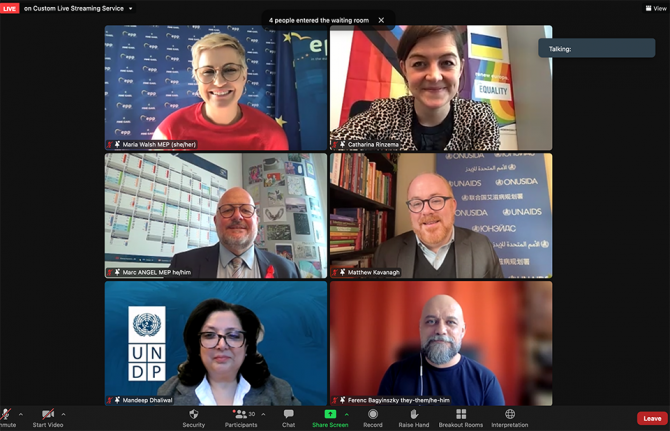
Engaging the EU in the Global Partnership on Zero Discrimination Day

The case for anti-discrimination legislation in Jamaica
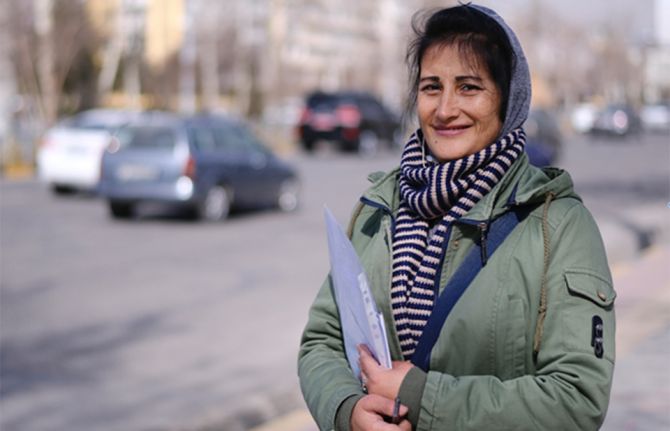
“An HIV diagnosis should not be a guilty verdict—it’s just a diagnosis"

“My life’s mission is to end stigma and discrimination, and that starts with U = U”: a story of HIV activism in Thailand
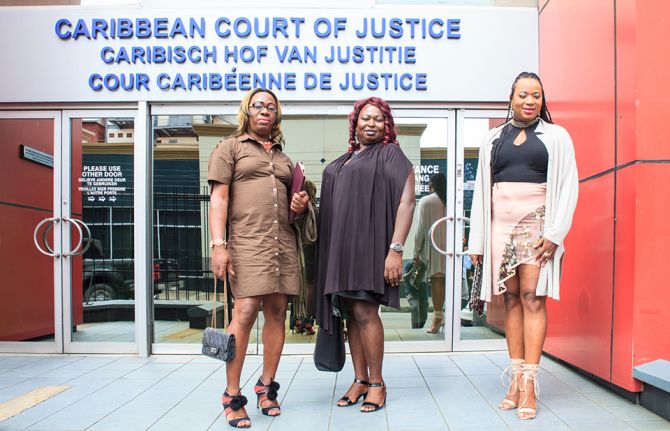
Guyana’s transgender community calls for protection under anti-discrimination laws
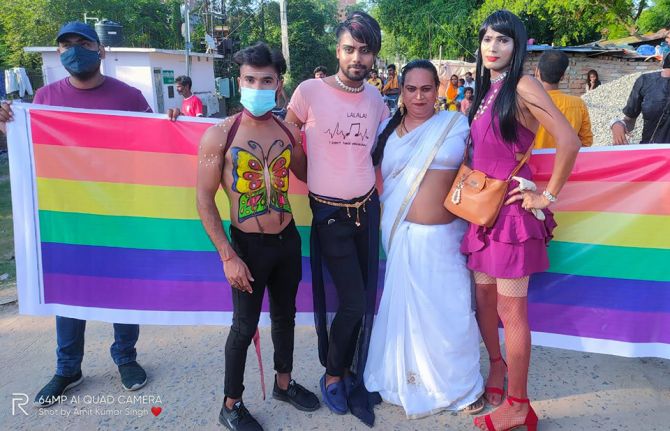
“They [the transgender community] don’t have to be products. They can be producers too”

Many key populations avoid health services
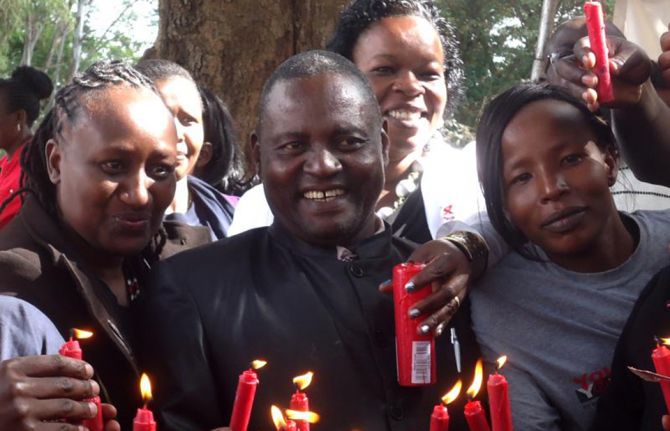
UNAIDS saddened by the death of Joe Muriuki
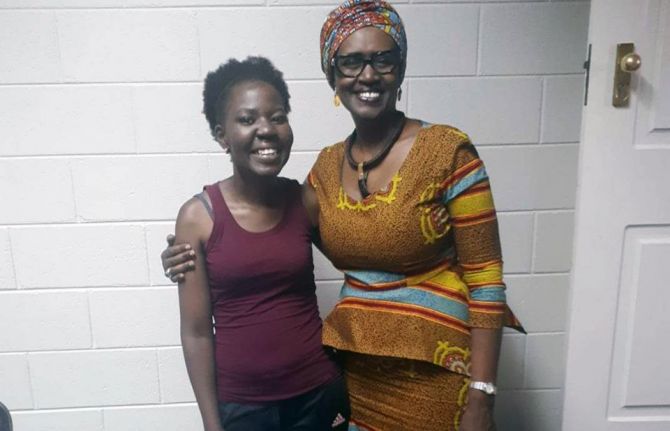
UNAIDS saddened by the death of Leonora Mathe

Towards a life of dignity for people living with disabilities
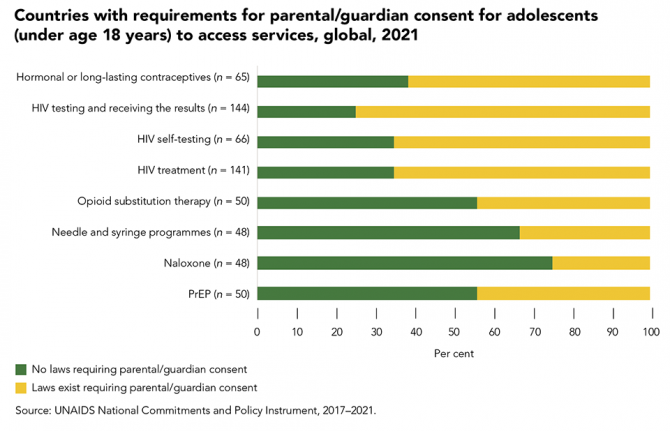
Parental consent laws leave adolescents vulnerable to HIV
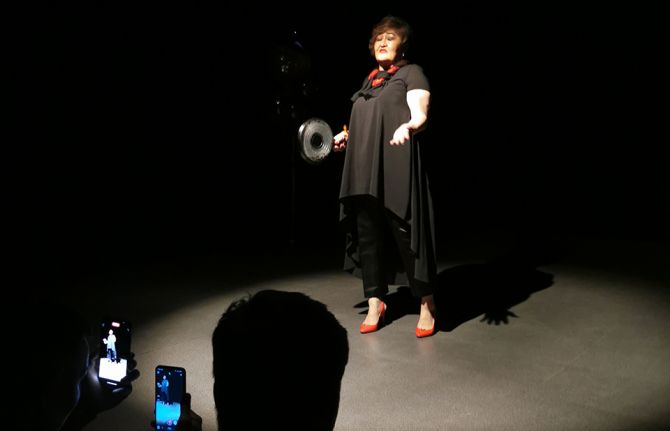
“Play with your heart”— Kazakh women living with HIV tell their stories from the stage
Networks led by young people in Asia and the Pacific find ways to adapt to COVID-19 and deal with uncertain futures
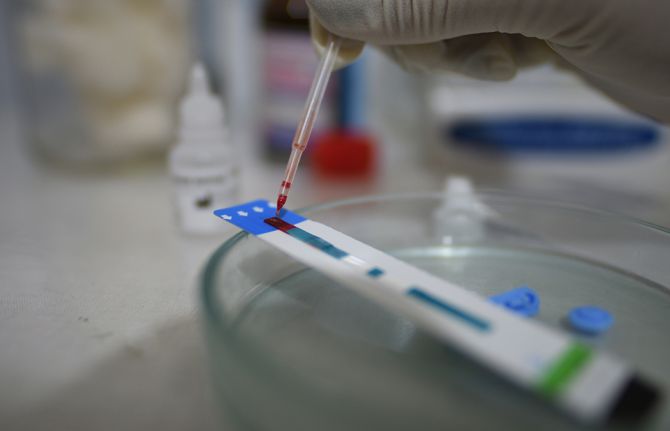
Identification of fast-spreading HIV variant provides evidence of urgency to halt the pandemic and reach all with testing and treatment
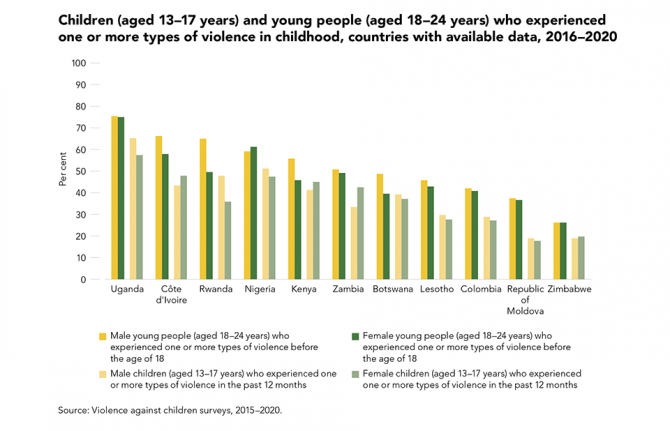
Experience of childhood violence is high
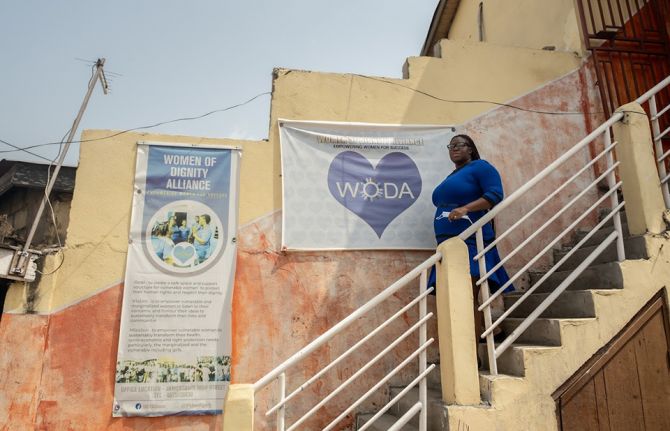
UNAIDS Solidarity Fund helps female sex workers in Ghana
The importance of engagement of community organizations to ensure the sustainability of HIV services in eastern Europe and central Asia
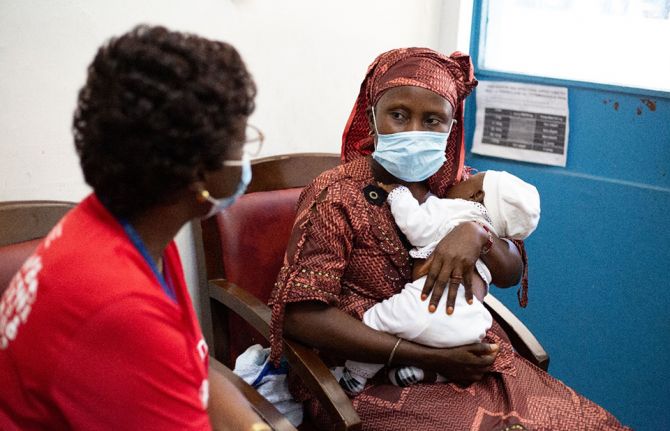
One hundred and fifty thousand preventable new HIV infections among children in 2020
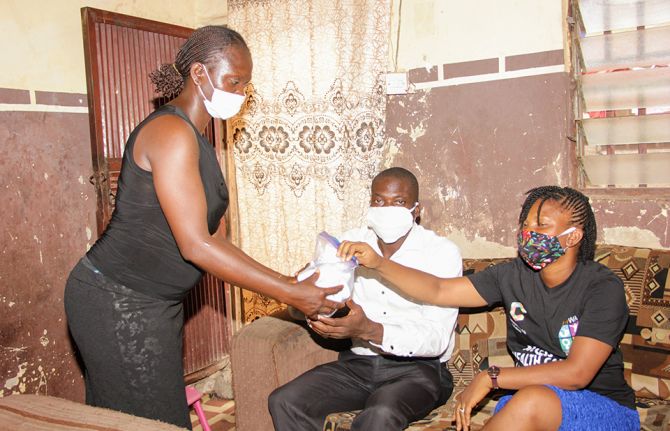
New report highlights vital role of community-led organizations in pandemic response and preparedness
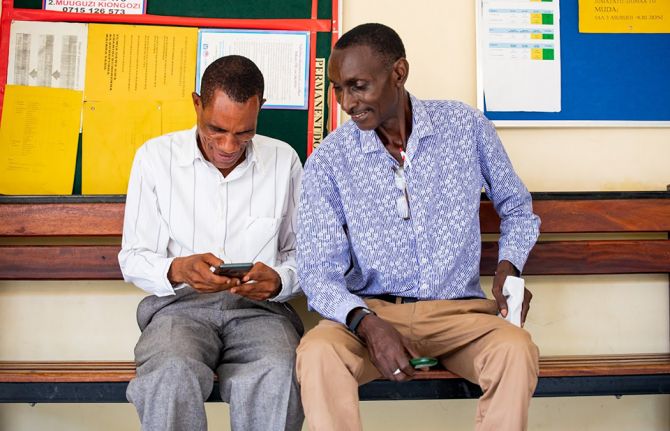
Missing men living with HIV
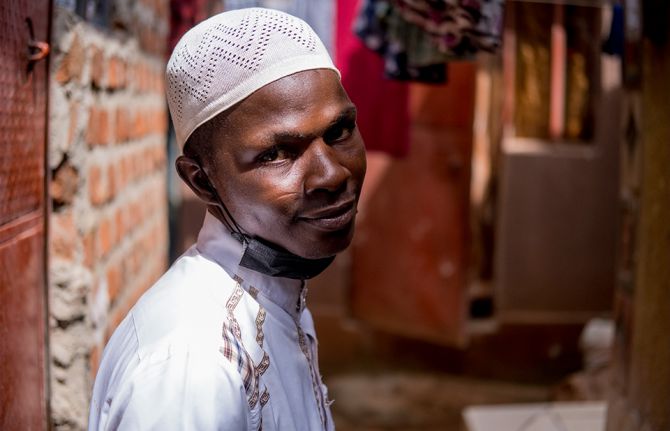
Empowering people who inject drugs in Uganda
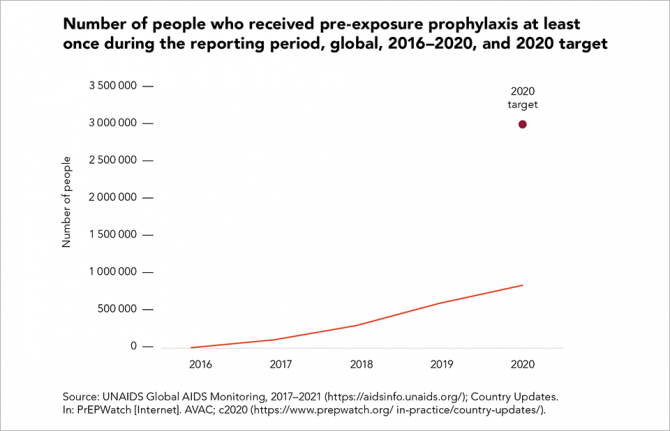
Pre-exposure prophylaxis use expands, but not fast enough
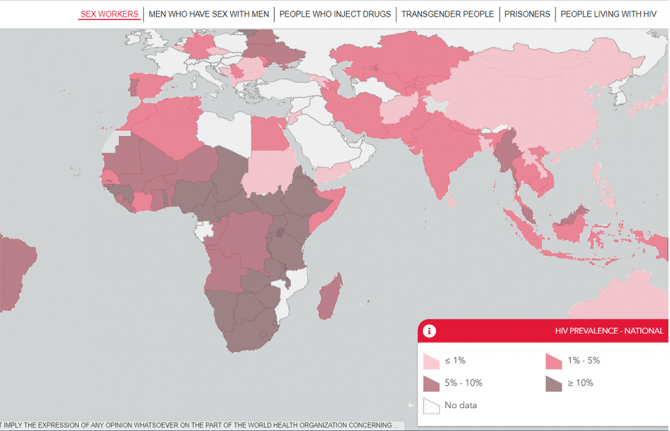
New indicators added to Key Populations Atlas

Love and condoms: broadcast on the importance of condoms in eastern Europe and central Asia
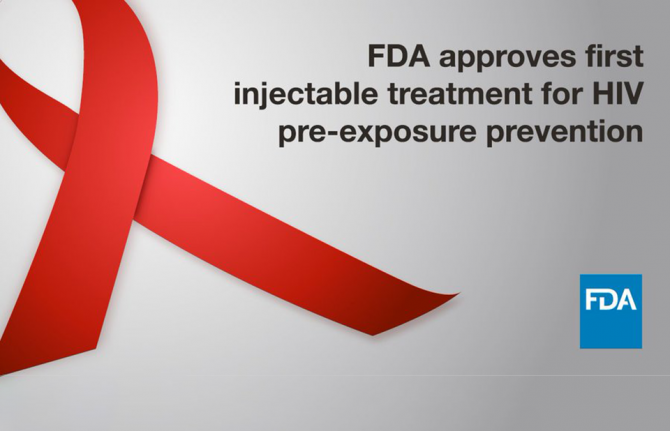
UNAIDS welcomes the approval of long-acting injectable cabotegravir as a pre-exposure prophylaxis for HIV prevention
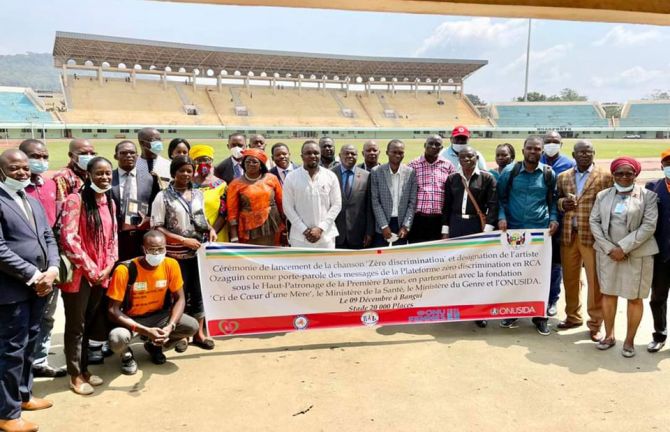
A song to stop discrimination
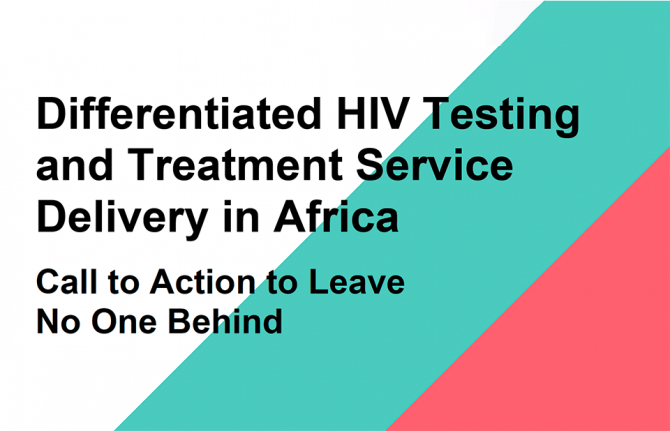
The need for wider implementation of people-centred differentiated service delivery for HIV testing and treatment in Africa

International Human Rights Day: overcoming pandemics by respecting human rights for all
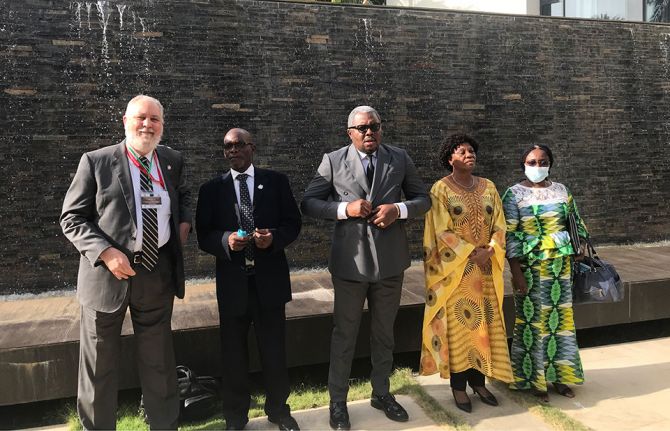
High-level continental seminar on the right to health and social protection in Africa
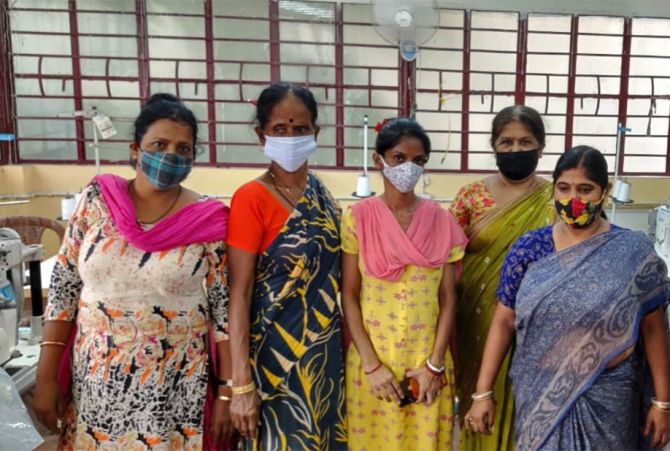
Empowering sex workers through social enterprises
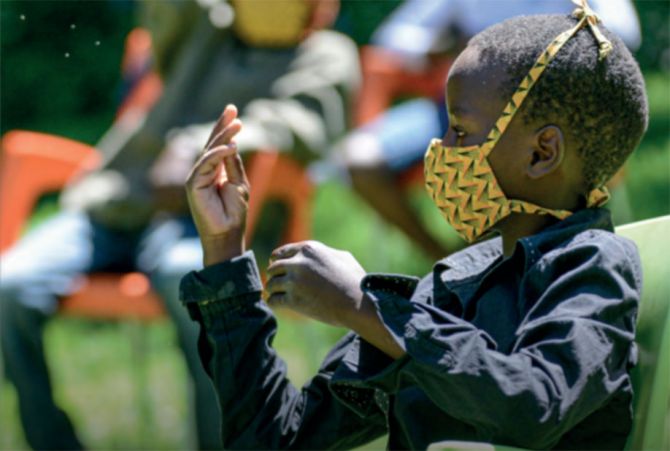
We need your thoughts and ideas on how to end AIDS among children, adolescents and mothers—new global online survey launched
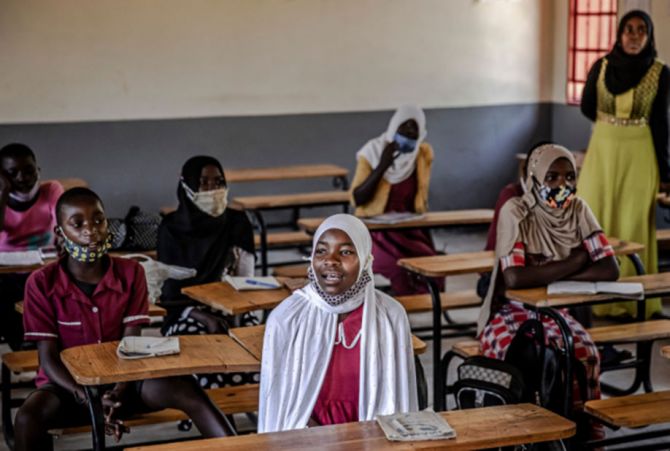
Leaders from Eastern and Southern Africa recommit to the education, health and well-being of adolescents and young people
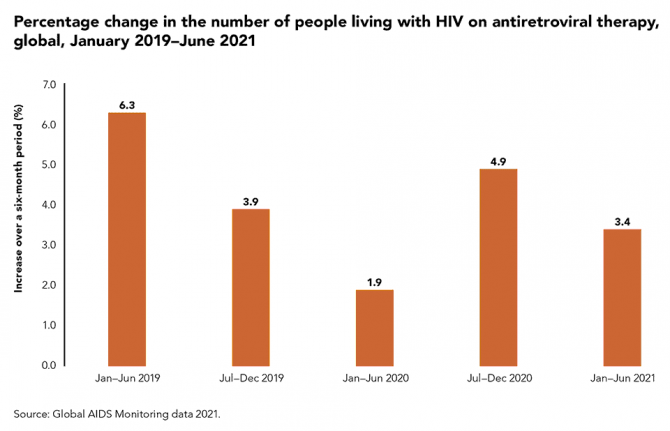
COVID-19 hit treatment take-up, but 28.2 million people living with HIV now on treatment
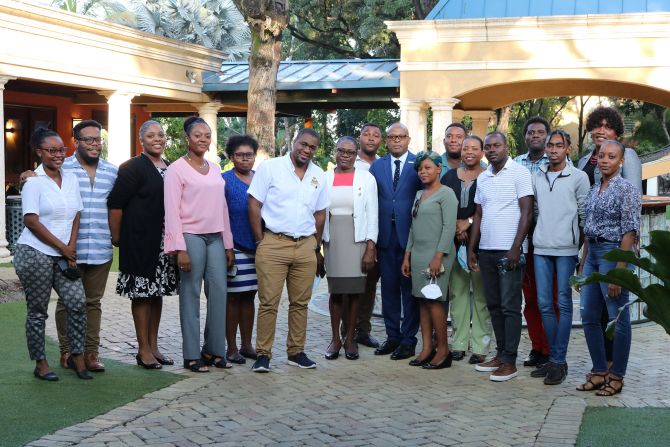
Strengthening Haiti’s HIV response through community-led monitoring
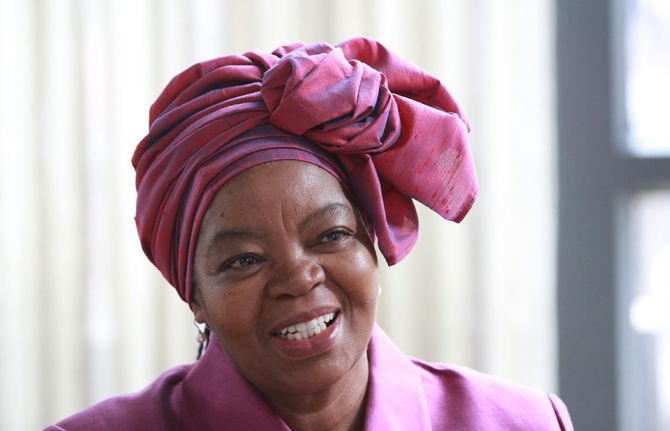
Fulfilling our promise to adolescents and young people
Community health workers strengthen HIV and COVID-19 responses
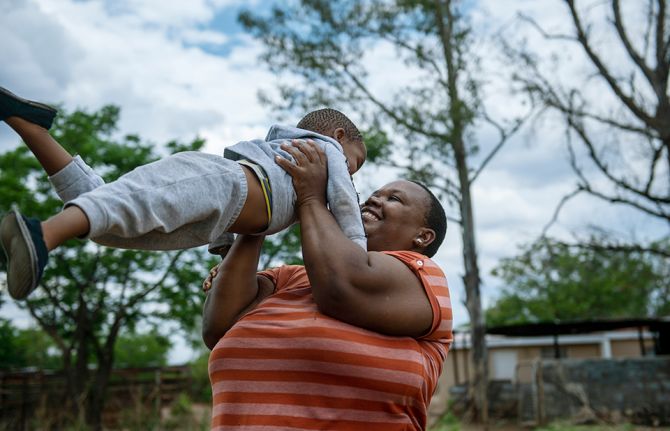
Botswana is first country with severe HIV epidemic to reach key milestone in the elimination of mother-to-child HIV transmission
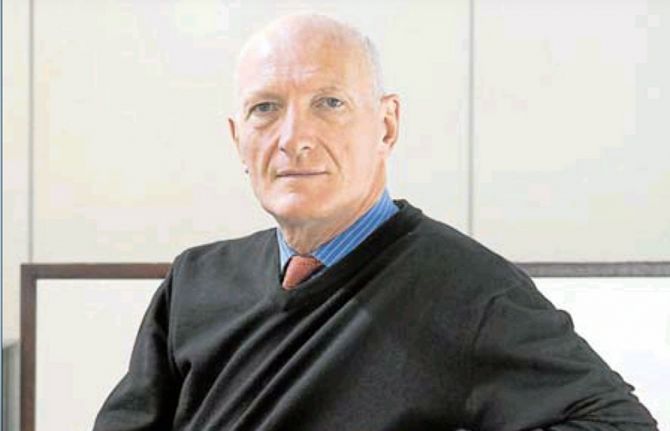
Forty years of AIDS: Equality remains central to quelling a still-potent epidemic

UNAIDS warns of millions of AIDS-related deaths and continued devastation from pandemics if leaders don’t address inequalities
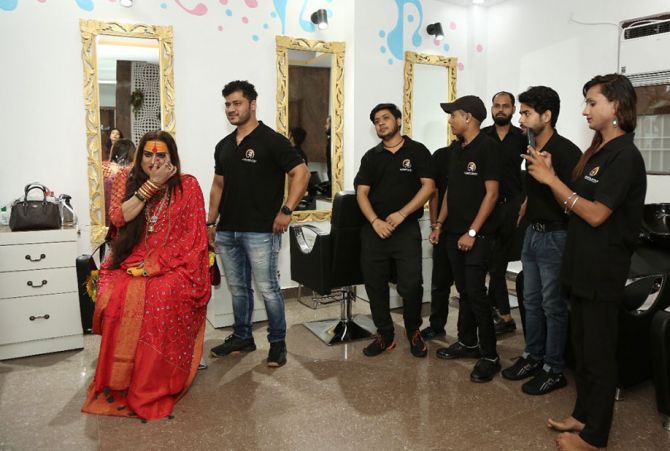
Ready to be the change
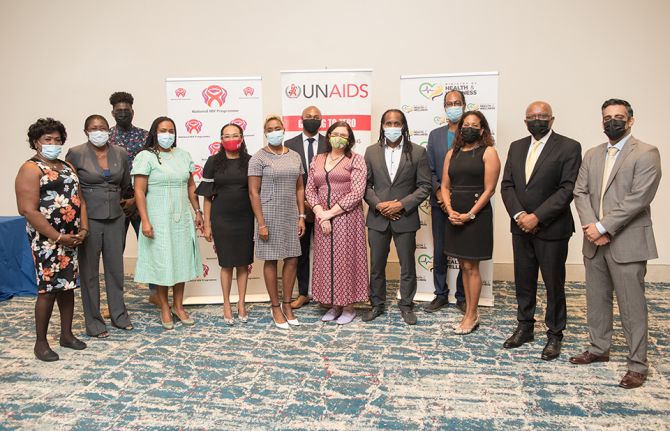
Jamaican parliamentarians committed to ending discrimination
